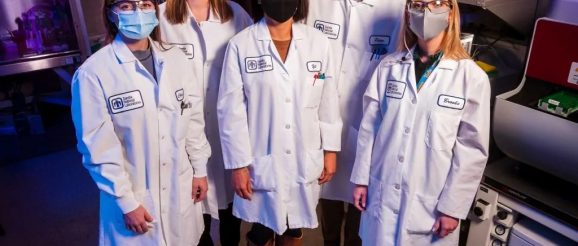A faster, more effective approach to developing nanobody therapies that prevent or treat viral infection – Innovation Toronto

Neutralizing nanobodies represents an attractive strategy, Brooke said, due to their ability to work effectively against an entire family of viruses or variants.
Nanobodies are modular, meaning they can be combined with other nanobodies to increase their ability to bind to the virus or target specific tissues. Nanobodies can also be produced as smaller versions of conventional antibodies with the ability to engage the immune response.
Additionally, due to the small size of the nanobodies, they can be released into the blood and penetrate tissues more thoroughly than conventional antibodies. Nanobody therapies can also target an infection site directly, decreasing the dose needed and increasing efficacy.
Nanobodies can also be administered via aerosol, so they can be given to a patient orally or in an inhalable form. Conventional antibody treatments are less versatile and must be received through injection only.
“All of these qualities and features of nanobodies make nanobody therapies more effective than current solutions. These treatments are also easier and cheaper to manufacture,” Brooke said, “making Sandia’s method for developing and characterizing novel neutralizing antibodies an invaluable addition to the toolset for combatting the COVID-19 pandemic and future health crises.”
Sandia’s research on nanobodies for emerging viruses received national recognition in October as a recipient of a 2021 R&D 100 Award, which honors the 100 most technologically significant products and advancements in the past year.
BPK is excited with this potentially game-changing therapy treatment and targets to submit the patent … in Europe and Korea regarding development of a new CAR-T form using nanobody and new immune …
